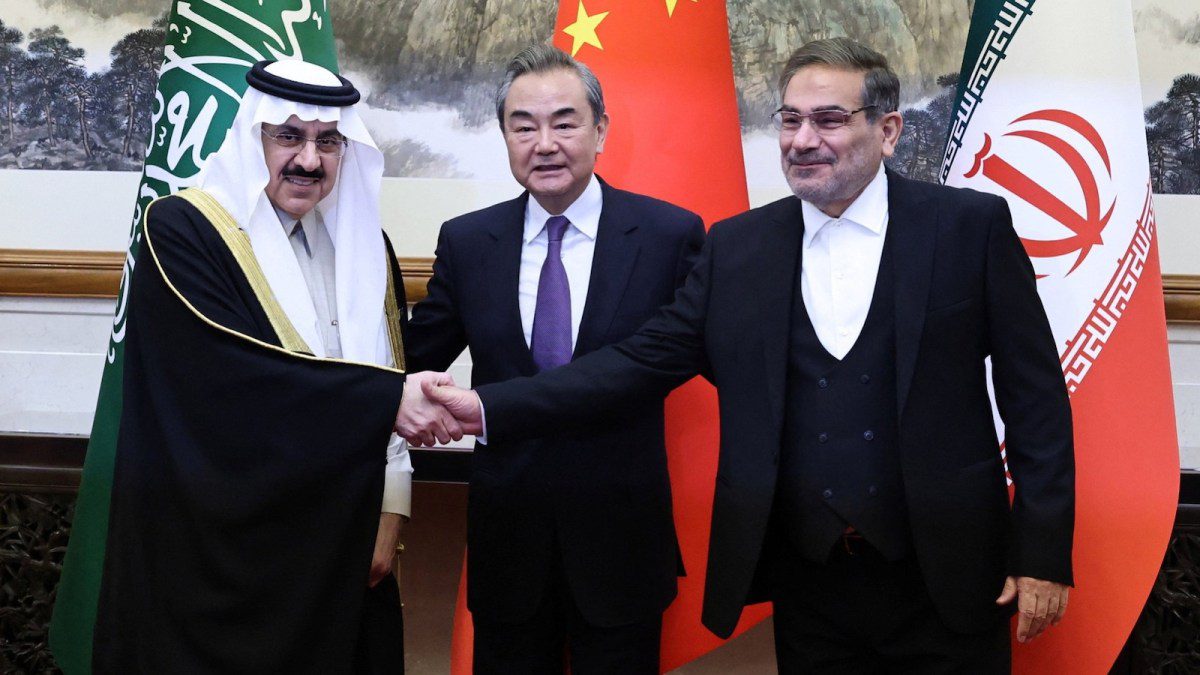Global Courant 2023-05-04 11:59:18
In March, Iran and Saudi Arabia agreed restore diplomatic relations, with China playing a role as host of the talks. This sparked much debate among policy makers and the scientific community. Some believed this signaled a new shift in China’s approach to the Middle East, which focused primarily on commercial relations.
But the assumption that China is about to assume a more prominent and active role as one conflict mediator in the Persian Gulf region is exaggerated. Although Beijing hosted the talks leading up to the agreement, much of the substantive work had been done before, mainly by Iraq And Oman.
China’s belated involvement was also made possible because the The United States has no relations with Iranmaking it difficult for the US to reach a deal.
China’s participation was like its previous regional conflict management efforts. It tried that between 2004 and 2007 bridge the gap between the international community and the Sudanese regime during the crisis in Darfur. Beijing then did something similar in 2013-15 between the West and Tehran on the Iranian nuclear program, culminating in the Joint Comprehensive Plan of Action.
In both cases, Chinese involvement was aided by a predetermined framework for dialogue and the willingness of both sides to involve Beijing.
Discussion since the Saudi-Iran deal has moved on to how China could guarantee relations between the two rivals. This is too much of the agreement, which was limited to resuming diplomatic relations.
Even if China had the will, it lacks capacity to force himself upon the two signatories, not least because various grievances between them persist. They contain The creeping nuclear militarization of Iran and their opposing views on the Civil War Yemen – although there are signs that the two sides are beginning to find each other some common grounds.
Even if China cannot guarantee future stabilityAre there sufficient incentives from the region that could make this possible?
Iran and Saudi Arabia had good reasons to come to an agreement. On the Saudi side, there is a feeling that Washington has become less reliable. At the same time, Riyadh realizes that it is diversifying relationships not a bad thing – The commercial ties of Saudi Arabia have grown significantly with China over the past two decades.
Between 2005 and 2022, Chinese investment in Saudi Arabia totaled $12.78 billion, compared to $4.72 billion in Iran.
Meanwhile, Iran is struggling economically. It is between 2012 and 2021 GDP nearly halvedfrom $644 billion to $360 billion, compounded by sanctions. It also faced widespread protests against the 2022 murder of Mahsa Amini in police custody, prompting her to crack down on protesters.
Compared to the Saudis, Iran has fewer available alternatives. Although it signed an investment contract with China two years ago, there is little evidence that it led to a contract significant increase in resources. Allowing China to hold diplomatic talks with the Saudis may have been Iran’s way of staying in Beijing’s line of sight.
The agreement of both parties to involving China may lessen some of the rivalry in the Gulf, while also signaling that Beijing may be becoming aware that its growing economic profile carries political implications.
China has long been trying to avoid getting caught up in that regional tensions and conflicts. But that turns out to be more difficult than it seems. Following the Gulf Cooperation Council summit with China in December 2022, a joint statement reiterated the GCC’s long-standing support for the United Arab Emirates’ claims to the islands of Tunb and Abu Musa. Tehran also claims these islands and cried the Chinese ambassador after the announcement.
The Chinese now seem to be paying more attention to tensions in the Gulf region. On the eve of his visit to the Gulf in 2021, then-Foreign Minister Wang Yi published China’s Five point plan. It referred to the need for collective and regionally generated security in the Gulf. Wang pointed to the need for a “trust mechanism” along with “security for oil facilities and shipping lanes”.
While it is noteworthy that China was involved in the final phase of restoring diplomatic relations between Saudi Arabia and Iran, it is important not to overstate either the nature of the deal or China’s role in the region. Other regional conflicts, such as those in Syria, Israel-Palestine, Libya or Yemen, are likely to remain out of Chinese intervention.
As long as conflicting parties and their external lenders current benefits of ongoing conflict because it outweighs the cost of terminating them, it will be unattractive for a third party like China to mediate. If Beijing decides that acting as a mediator can help enhance its statusit may conclude that failure to achieve a successful outcome could damage its wider regional credibility.
As long as Saudi-Iran relations are considered to be on the upswing, it will remain so benefit both for them and for Beijing and its regional position. But if they start to stagnate or deteriorate, it could be detrimental to China’s meddling in regional politics.
Perhaps for this reason, Beijing has so far shied away from adopting a more sustainable and engaged approach to the two regional rivals.
This article was first published by East Asia Forum, which is based on the Crawford School of Public Policy within the College of Asia and the Pacific at the Australian National University. It has been republished under a Creative Commons license.
Similar:
Loading…




